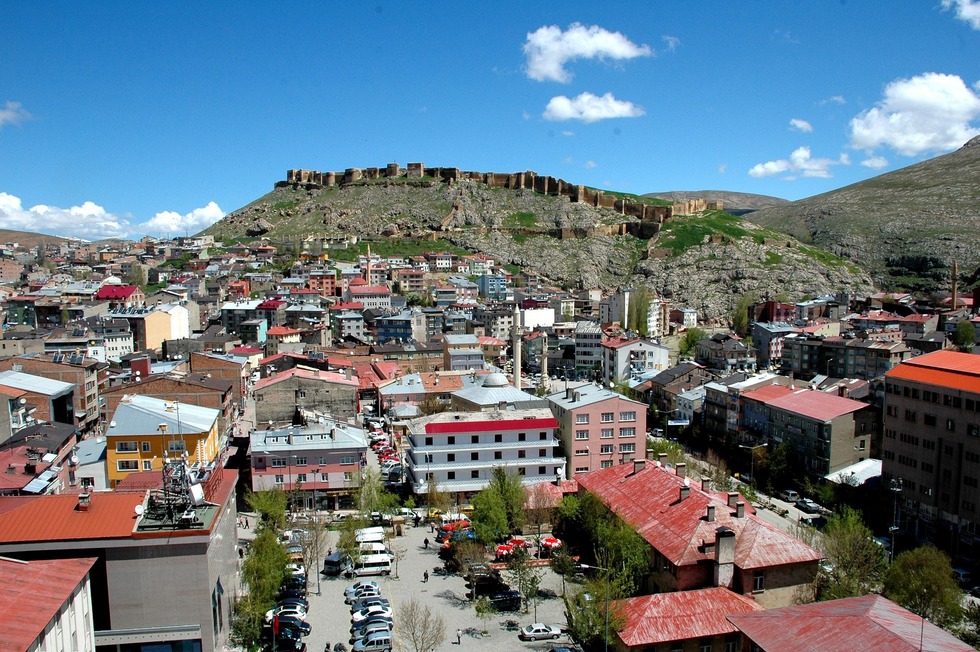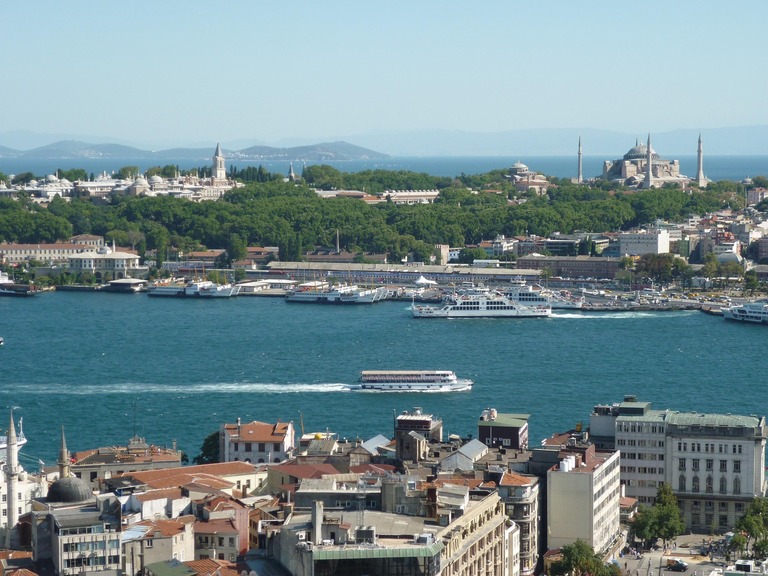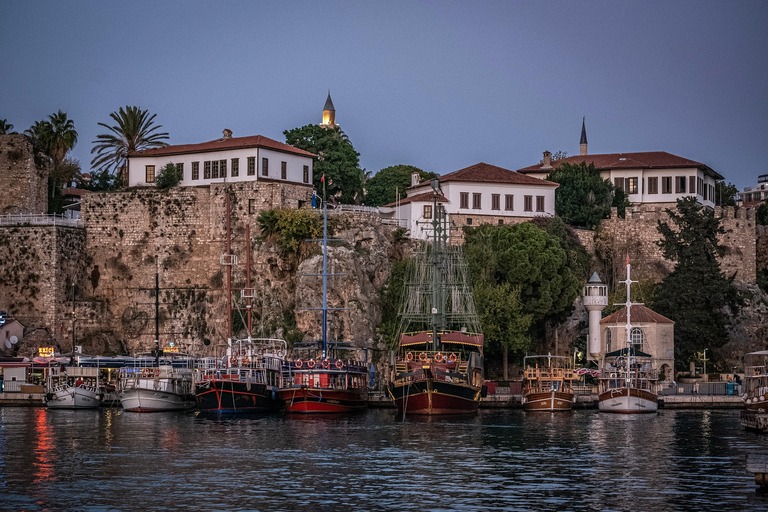Can foreigners buy property in Turkey? A complete guide

Turkey has become one of the most compelling places for international buyers, with home sales surpassing 1.4 million in 2024 and foreign demand continuing to rise. Coastal cities like Antalya and Istanbul combine lifestyle appeal with competitive prices, drawing steady interest from overseas investors. For a US citizen, the process is straightforward thanks to secure registration and clear financial rules. Strong ownership protections and transparent closing costs give confidence that your investment is backed by a stable legal framework.
This article is brought to you by Taxes for Expats, a top-rated team helping Americans abroad meet US filing requirements. Understanding the tenets of buying property in Turkey can help you plan cash flow, rental income, and how much you report to the IRS. If you are confused, our team will guide you every step of the way.
Why Turkish properties attract foreign attention
Turkey blends coastal living with dynamic cities and steady visitor demand. So, if Turkey is on your shortlist, here’s why the fundamentals still draw international buyers.
- Turkey ranks third worldwide for Blue Flag beaches, with 577 in 2025, and Antalya leads with 233, while tourism revenue hit $61.1 billion in 2024.
- Average gross residential yields reached 7.76% in Q3 2025, with Istanbul averaging about 8.15% across apartment types.
- There were about 1.08 million foreigners holding residence permits as of March 2025, concentrated in major hubs like Istanbul and Antalya. Americans buy property in Turkey alongside European and Middle Eastern citizens in these same markets.
Can foreigners own homes in Türkiye?
Attraction is one thing; eligibility is another. You need to note that buying a home in Türkiye is possible for most non-residents, provided you follow clear statutory limits and procedures. Start with the legal basics international buyers actually use at the closing table.
What is the legal framework, and who is eligible?
Foreign natural persons may acquire a freehold title under Land Registry Law No. 2644, Articles 35 and 36, without needing a residence permit at purchase. A foreigner can hold up to 30 hectares nationwide, and acquisitions by foreigners may not exceed 10% of a district’s private land area. Military and military security zones are off limits, and some areas require governor approval.
Notaries have been authorized to execute property sale contracts in addition to the Land Registry since 1 January 2023, under Article 61/A of Notary Law No. 1512. Real estate buyers must route payment through the banking system using a Foreign Currency Purchase Certificate, known as DAB, introduced by the Central Bank in 2022 and enforced by land registry circulars. As of June 2024, the general appraisal report requirement was lifted for ordinary sales, but it still applies for citizenship filings.
Turkish citizenship through property requires a minimum of USD 400,000 with a three-year no-sale annotation placed on the title.
What restrictions apply to property ownership?
Beyond the citizenship path, there are also other limits you should confirm before committing to a property, as buying is broadly permitted, but specific zones and aggregate limits apply. If you plan to buy land for development, you must file a project with the relevant authority within two years, where applicable.
- Maximum holding per person: 30 hectares nationwide.
- Prohibited areas: no acquisitions in military or military security zones; special security zones may require the governor's permission.
- Corporate angle: foreign companies established abroad can acquire only where a special law permits; Turkish companies with foreign capital may acquire in line with their stated activities, subject to approvals.
What are the key criteria for international buyers?
Once you’ve confirmed that your target area and property type are eligible, here’s what you’ll need to finalize the purchase. Closings run either at the Land Registry or a notary, and they hinge on identity, compliant payments, and insurance. Officials routinely request the following at closing.
- Passport or ID with certified Turkish translation if needed, plus tax number.
- DAB from a Turkish bank showing FX conversion and the purpose of purchase before title transfer.
- Mandatory earthquake insurance (DASK) for the dwelling before utilities and as part of the file.
- A sworn interpreter is present if you do not speak Turkish.
- Valuation documents were required, including for the Investment Program tied to citizenship filings.
- Choose venue: notary or Land Registry appointment, both are legally valid.

Turkey housing prices in the 2025 market
After understanding the legal and procedural side, the next step is knowing what prices to expect in today’s market, and we broke that down using averages from Numbeo’s September data to compare Turkey side-by-side with Europe and the US. Many buyers who plan to buy property in Turkey should use these numbers as a first filter before drilling into neighborhood comparables.
| Region | City center price per m | Notes and examples |
|---|---|---|
| Turkey | 84,968 TL | Outside center about 49,533 TL per m. |
| Europe | 8,300 to 13,800 EUR | Paris 13,791, Berlin 8,974, Madrid 8,295 per m, currency set to EUR. |
| USA | 6,145 to 15,502 USD | New York 15,502, Los Angeles 8,024, Washington, DC 6,145 per m, set to USD. |
Compare micro markets such as Istanbul, Antalya, and Ankara before bidding. Price awareness matters especially when foreigners decide to make a property purchase, since currency swings can distort cross-border value comparisons. These comparisons sit inside a fast-moving macro picture that affects pricing power and timing. Market context for real estate turns on three levers (inflation, demand, and new developments):
- Annual CPI hovered around 33% in July and was projected near 32.5% for September, shaping expectations and discount rates.
- Home sales hit a fresh 2025 peak in August, while the CBRT index still showed monthly nominal gains even as real prices eased.
- TOKI reports 1,703,904 housing starts across 81 provinces as of August 2025, and rebuilt housing permits from quake-hit regions were added to TurkStat’s statistics in Q2 2025.
Most popular places to buy property in Turkey
Those national figures only tell part of the story – local markets vary widely. Here’s how the most active regions compare, as the big cities lead in value and liquidity. Use the following city snapshots to focus your search, so you can keep your plans of buying property in Turkey detailed and focused.
Istanbul, the heartbeat of business and culture
Istanbul anchors demand with blue-chip districts such as Besiktas, Sisli, Kadikoy, and Basaksehir that draw international buyers and stable tenants. Numbeo shows averages near 119,521 TL per m in the center and 57,156 TL per m outside, with gross yields around 7.2 to 9.3% depending on location.
Istanbul, Turkey. PHOTO CREDIT: PIXABAY
Closings carry a 4% title deed fee, and rentals are taxed on progressive bands with a 47,000 TL 2025 residential exemption and 20% withholding on workplace leases, and Istanbul remains the headline proof that foreigners buy property in Turkey at scale.
Antalya and the Mediterranean lifestyle coast
Antalya blends resort living with year-round services and a market shaped by tourism-led real estate. TÜK data keeps Antalya at or near the top for foreign purchases, confirming deep international demand.
Antalya, Turkey. PHOTO CREDIT: PIXABAY
- City center pricing is around 2,581 USD per m, with coastal submarkets like Konyaalti, Lara, and Alanya priced by beach proximity.
- Holiday lets can reach strong peak season occupancy, declare rental income, and apply the 47,000 TL 2025 residential exemption where eligible.
- Pros: strong tourism and airport links; cons: seasonality and higher HOA fees in serviced sites.
Bodrum and the Aegean’s luxury playground
Bodrum is the Aegean’s luxury magnet from Yalikavak Marina to Turkbuku. Supply is tight on the peninsula, and pricing skews to villa stock.
Bodrum, Turkey. PHOTO CREDIT: PIXABAY
- Premium spots such as Yalikavak often trade near €6,500 per m, while wider Bodrum stock averages roughly €3,000 to €4,000 per m.
- Local analyses cite asking levels up to 220,000 TL per m in select luxury projects; verify by micro location and spec.
- Closing costs align with the 4% title deed fee; expect elevated site fees in gated seafront compounds.
- Some buyers pair Bodrum purchases with Turkish citizenship through a qualifying investment.
Ankara and the rise of new investment programs & markets
Value seekers who plan to buy property in Turkey look closely at Ankara for steady, year-round tenants from the government, embassies, and universities. Numbeo’s latest historical figures show roughly 56,733 TL per m in the center and 38,944 TL per m outside. Transaction costs follow the national rule, and rental income is taxed at progressive rates with the 2025 exemption.
Ankara, Turkey. PHOTO CREDIT: PIXABAY
Mersin has risen as a coastal alternative with improving infrastructure and a growing international buyer base. TÜK placed it among the top three provinces for foreign purchases in multiple 2024 months, reinforcing its momentum. Keep purchase budgets flexible in emerging submarkets and confirm building quality and HOA practices before committing.
Steps to close your Turkish property
Once you’ve chosen a location, these are the practical steps to take your property purchase from search to signed deed while adhering to clear rules set by the Land Registry. Follow the sequence to keep you compliant from day one when buying property in Turkey.
Step 1: Obtain a foreigner ID number (YKN). If you already hold a residence permit, your YKN can be queried via the e-Devlet system or migration authorities; if not, secure a tax identification number online first to handle banking and registry actions. Use the official Potential Tax Number Application for Foreigners on the Turkish Revenue Administration portal to generate your number before any payments.
Step 2: Open a Turkish bank account. Banks will ask for your passport and Turkish tax number, then route your funds for the mandatory Foreign Currency Purchase Certificate known as DAB, which converts your FX to lira for the deed. TKGM’s guidance and diplomatic posts confirm that, for foreign buyers, the registered sale price equals the TL amount on the DAB.
Step 3: Search for properties (new vs resale). New build first deliveries to qualifying non-residents can be VAT-exempt if paid from abroad in FX and held for three years, while resales do not qualify, so compare net prices carefully. Keep your shortlist organized by location, permits, and VAT status to streamline buying property in Turkey.
Step 4: Work with a licensed real estate agent or lawyer. Verify the brokerage authorization certificate and remember the Ministry of Trade enforces a 4% total commission cap on sales, typically split 2% buyer and 2% seller, plus VAT. A lawyer can coordinate documents and checks while the agent manages viewings and negotiations.
Step 5: Property due diligence and legal checks. Confirm title, encumbrances, and any restricted zones, and note statutory limits for foreign individuals, such as the 30 hectares nationwide cap and the 10% per district ceiling. Use official channels or counsel to verify these limits early to avoid delays at the land registry.
Step 6: Sign the preliminary contract and pay the deposit. Use a notarized promise to sell for off-plan or when deferring transfer, and document the deposit terms clearly; in practice, deposits often run about 5% to 10% of the price, subject to agreement. If you plan to apply later under an Investment Program, align payment schedules and documentation with DAB and valuation requirements.
Step 7: Mortgage or financing options if needed. Several Turkish banks lend to non-residents, but underwriting is conservative, and timelines depend on appraisal and compliance checks, so start applications early. Independent guides outline common bank asks and typical borrower documents for foreigners.
Step 8: Transfer of ownership and title deed TAPU. Since 01.01.2023, notaries are authorized to conclude real estate sale contracts in addition to Tapu directorates, which can speed up scheduling in busy cities. On completion day, you present IDs, the DAB, required fees, and sign with an interpreter if needed, then receive your deed record.
Step 9: Register with the land registry and tax office. The title is perfected only upon registration at the Land Registry Directorate, after which you should notify the municipality of property tax and keep your receipts. If your purchase meets the USD 400,000 threshold and the hold conditions, it can support Turkish citizenship through property acquisition rules.
Step 10: Utilities setup and after-purchase formalities. Secure or renew the compulsory DASK earthquake policy to activate electricity, water, and other services, and calendar annual renewals. Keep a complete file with DAB, receipts, and policies to simplify audits and any future sales.
Costs, taxes & fees to expect
Start with the statutory charges that apply to every purchase, with the paperwork steps complete, and make sure you’ve budgeted the recurring levies that follow each year. In Turkish real estate closings, several items are fixed by law, while others vary by province or contract.
| Item | 2025 amount and rule | Who typically pays |
|---|---|---|
| Property transfer tax | 4% of the declared sale price, assessed as 2% on the buyer and 2% on the seller | Commonly split 50/50, but parties can agree otherwise |
| Notary and registration fees | Notary sale fee equals 0.1% of sale value, with a legal floor of 500 TL and ceiling of 4,000 TL per transaction; Land Registry revolving fund fee (döner sermaye) applies per TKGM’s 2025 tariff and local coefficient | Buyer and seller pay their own notary fees; the registration service fee is paid with the title transfer |
| Real estate agent commission | Capped at a total of 4% of the sale price, plus 20% VAT on the commission | Typically 2% + VAT each side on resales, terms negotiable on new builds |
| Annual property taxes | Dwellings 0.1% yearly, other buildings 0.2%, land 0.30.6%; rates are doubled inside metropolitan municipalities | Owner |
Beyond the headline fees, a few mandated items and admin charges can nudge your budget. These extras often surface late in the timeline, so factor them in early when buying property in Turkey.
- Compulsory earthquake cover DASK: In 2025, maximum coverage rose to 1,704,162 TL, and minimum annual premiums vary by risk band; a policy is required for utilities and at transfer.
- HOA dues (aidat): Set by the owners' meeting under Condominium Law No. 634 Article 20; nonpayment accrues a statutory 5% monthly late charge and can be pursued via enforcement.

Clear finance options for foreign buyers
If the cost, taxes, or fees stretch your cash, there are three practical ways to fund your purchase of property in Turkey. Compare all so you can analyze the speed, cost, and paperwork, and make your choice.
-
Cash purchases
Payments must move through a Turkish bank, and the buyer must obtain a Foreign Currency Purchase Certificate called DAB before title is issued. This rule has applied since 24 January 2022 and remains mandatory in 2025. -
Mortgages for non-residents
Major banks such as Isbank and Yap Kredi accept foreign applicants, with typical loan-to-value ranges of about 50% to 70% and terms up to roughly 15 years. Plan for a 30 to 50% down payment and prepare a tax number and income documents; this suits long-hold real estate buyers who prefer predictable schedules. -
Developer financing plans
Private developers often offer 0% installment plans for 12 to 36 months, commonly with 30 to 50% down, and many projects advertise 24-month schedules. Government-backed Emlak Konut’s 2025 campaign added longer options up to 120 months, with examples like a 6,000,000 TRY home at 60 months and monthly payments starting from 61,698 TRY.
Also read. FBAR filing - Guide 2025
Residency and citizenship through housing
Property ownership, for many buyers, isn’t just financial; it can also open a path to a lawful stay, then to a passport at higher thresholds. This is why we outlined the residence permit process via purchase, the real estate route to nationality, and what timelines to expect.
Under Law No. 6458 Article 31, title holders may receive a renewable short-term residence permit, issued for up to two years per grant. Since 16 October 2023, and still applied in 2025, the cadastral value for residence via purchase is set at 200,000 dollars, and the address must be in an open neighborhood. Ownership of property in Turkey does not by itself guarantee a permit if the district is closed to new applications.
The real estate route under the Investment Program requires a purchase of at least 400,000 dollars with a three-year no-sale annotation on the title. Eligibility is attested by the Ministry of Environment, Urbanization, and Climate Change and recorded by the Land Registry during registration. Alternative options include a $500,000 bank deposit or creating 50 jobs, each verified by the competent authority.
Approved applicants obtain Turkish citizenship by presidential decision under Law No. 5901, with rights that come with nationality. Typical processing for straightforward real estate files runs about four to six months from eligibility certificate to issuance. Immediate family inclusion and document checks apply throughout the process.
Steer clear of Turkish property pitfalls
The dream of owning property in Turkey can quickly sour if you overlook the basics. From inflated prices to shady agents, knowing what to avoid saves money and stress before you finalize.
- Many sellers pitch homes well above real value, hoping foreigners will pay more. In 2025, house prices rose about 33 percent in a year, so always cross-check market averages before making an offer.
- Skipping a lawyer may feel like saving money, but it often leads to bigger losses. Errors in contracts or missing paperwork can block you from completing the sale or even from applying for Turkish citizenship later.
- A property can look perfect yet still carry old debts or family ownership fights. Always insist on seeing official records that prove the title is clear before you hand over money, especially if you plan to join an Investment Program.
- Some agents operate without a license and charge unfair commissions. Only work with registered professionals, since Turkish law caps agent fees at 4 percent of the sale price and protects you from scams.
Once you’ve cleared the local hurdles, make sure your US tax reporting keeps pace. Here’s where professional help matters.
Secure your investment with professional tax guidance
Buying property in Turkey is only the first step – making sure you remain compliant with both IRS rules and Turkish tax laws is just as critical. From reporting rental income abroad to handling currency exchange records, even small filing errors can reduce the benefits of your purchase.
At Taxes for Expats, our specialists simplify every requirement so you can protect your investment and enjoy life overseas with confidence.








